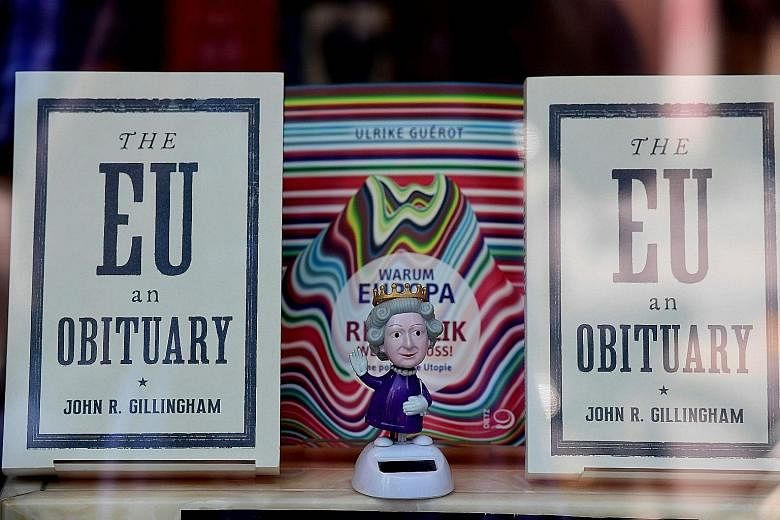BERLIN • German Chancellor Angela Merkel yesterday said Britain has to file official notification of its intention to leave the European Union before talks can start on its future relationship with the bloc.
Her comments came the same day that the foreign ministers of Germany and France called for ambitious steps to strengthen the EU.
Dr Merkel said she understands that it may take some time for the British government to invoke Article 50 that triggers the countdown to an EU exit, but it cannot be allowed to drag on.
"We can't afford an extended waiting game because that would be bad for the economy of both sides of the EU - the 27 members and Britain," Dr Merkel said.
"But I have a certain level of understanding if Britain takes some time to analyse things first."
Her spokesman, Mr Steffen Seibert, had earlier told reporters that Germany is willing to give Britain a "foreseeable" amount of time to sort out its position. Some European officials have suggested that the end of the year may be an acceptable time limit.
However, pro-Brexit leaders in the UK say there is no rush to pull the trigger on an exit, and suggest they can negotiate the terms of a deal in the interim.
Dr Merkel said she cannot dictate that the United Kingdom makes a quick notification of its intention to quit, but slapped down the option of talks beforehand.
"There can't be any informal negotiations before there's a formal declaration of intention to leave the European Union," she said.
With EU leaders due to meet in Brussels today amid French pressure for a quick break with Britain, the German Chancellor faces a balancing act that combines continued economic ties with the UK and the need to deal with the "Leave" vote that she lobbied against.
The foreign ministers of Germany and France have proposed closer cooperation among EU states in three key policy areas - internal and external security, the migrant and refugee crisis, and fiscal and economic policy.
"We will... take further steps towards a political union in Europe, and we invite the other European states to join us in this endeavour," Mr Frank-Walter Steinmeier and Mr Jean-Marc Ayrault wrote in a joint position paper.
The top diplomats of the two core EU founding members and biggest economies said "Germany and France have a responsibility to strengthen solidarity and cohesion within the EU".
Meanwhile, US Secretary of State John Kerry yesterday urged EU members not to "lose their head" or be "revengeful" after Britain's vote to leave the bloc.
BLOOMBERG, AGENCE FRANCE-PRESSE

